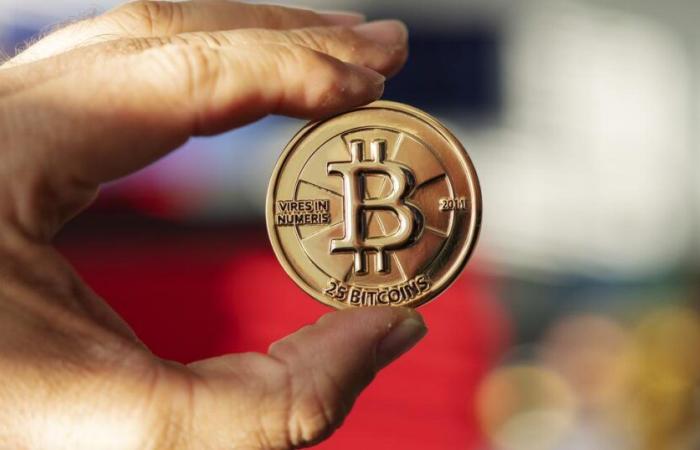A recent initiative wants to force the Swiss National Bank to buy the main cryptocurrency. Other central banks and governments are called upon to do the same, but are often reluctant.
The Swiss National Bank (SNB) would be the second in the world to launch. For the moment, there is only the central bank of El Salvador, which has 10% of its reserves in bitcoin. Everyone else stayed away from cryptocurrencies.
But this could change in Switzerland. In any case, this is the wish of a group of cryptocurrency enthusiasts, who this week tabled an initiative to enshrine in the Constitution the obligation for the SNB to hold gold and bitcoins.
>> To find out more on the subject: A popular initiative wants to force the SNB to invest in bitcoin
The subject is gaining momentum almost everywhere. In Germany, Liberal Democrat Christian Lindner, who served as finance minister until last November, suggested the European Central Bank do the same.
“Strategic” stocks in the United States
In the United States, Donald Trump also has a plan to build up what he calls strategic bitcoin reserves worth $15,000 billion, alongside already existing stocks of gold. For the elected president, this loot would strengthen the financial situation of the country which already holds more than 200,000 following seizures, a total of nearly 20 billion dollars. Some American states such as Florida have announced that they also want to build up stocks.
In Switzerland, the initiators want above all to spark a debate on cryptocurrencies and their place in the economy. For the BNS, these purchases would make it possible to diversify its reserves while benefiting from the performance of bitcoin. The latter set a series of records last year. It more than doubled in value and exceeded $100,000 at the end of the year.
Moral caution for bitcoin
Obliging the central bank to hold the main cryptocurrency would also make it possible to integrate it into the financial system and give it a sort of moral guarantee. This may seem paradoxical since bitcoin by definition is an anti-system currency, decentralized and which does not require authorities.
So far, the SNB has been rather skeptical about these proposals. Its former president, Thomas Jordan, who left the institution at the end of September, estimated two years ago that bitcoin did not meet the criteria to appear among the reserves. Contacted, the bank today confirmed these comments. The BNS first aims for stability, which is not the strong point of cryptocurrencies, before the performance of the assets it holds. For now, it is allowed to buy stocks, bonds, currencies, derivatives and gold.
And other central banks seem to be on the same page. This fall, the European Central Bank (ECB) published a paper in which it explains that bitcoin simply has no value, that it is even a factor of inequality. The resistance to this cryptocurrency becoming an integral part of the system is therefore still significant.
Mathilde Farine






